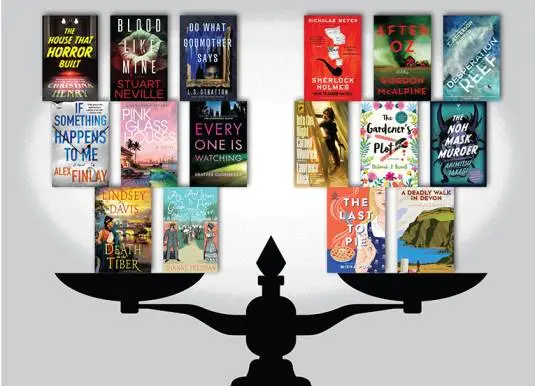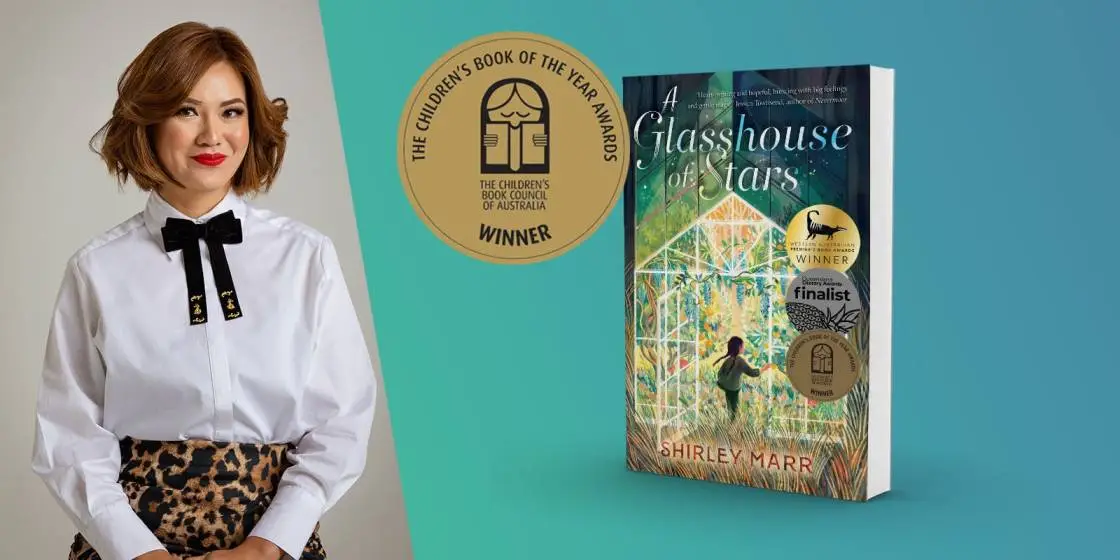Why Michael Eric Dyson Would Demote Heart of Darkness From the Canon

“It’s done so much damage in fashioning savage notions of Africa,” says the author of “Jay-Z: Made in America” and many other books.
What books are on your nightstand?
“American While Black: African Americans, Immigration, and the Limits of Citizenship,” by Niambi Michele Carter. “Sexual Citizens,” by Jennifer S. Hirsch and Shamus Khan. “Heaven and Hell,” by Bart Ehrman, one of the best and most insightful thinkers on the Gospels and religion. “W.E.B. Du Bois,” by Charisse Burden-Stelly and Gerald Horne.
“#Driven,” by Corey Minor Smith, a self-published memoir, searing and moving, about a fascinating woman who moved eight times and attended 14 different schools before graduating high school, had a mother diagnosed as schizophrenic, became a mother her senior year of college, and eventually went to law school and became a successful attorney. “No, You Shut Up,” by Symone D. Sanders. “My Vanishing Country,” by Bakari Sellers. “Say It Louder!,” by Tiffany Cross. (The aforementioned trio are among my favorite younger political activists, thinkers and talking heads.) “Reel Inequality,” by Nancy Wang Yuen, an important study of the racist barriers minority actors confront.
And finally, a staple on my nightstand, “In the Spirit,” by Susan L. Taylor. The Queen of Black America drops gems while working to save our babies, especially those caught on video being pummeled senseless or kneed to death by the cops, or being hunted down and killed in broad daylight during a pandemic, while folk who flock to state capitols with assault weapons are treated with kid’s gloves.
What’s the last great book you read?
“Thelonious Monk,” by Robin D. G. Kelley, the biography of a musical genius written by a certified polymath. Kelley is a world-famous historian who reads and writes across several disciplines as he cooks his family gourmet meals, does doting daddy duty, grades pitiful undergraduate papers, directs the dissertations of an army of emerging scholars across the nation and plays a mean jazz piano, all while cranking out groundbreaking books. Truly disgusting, um, I’m sorry, I meant demoralizing, yet somehow inspiring.
Describe your ideal reading experience (when, where, what, how).
In my home office, surrounded by my beloved library, sitting in my desk chair, swiveling here, and rocking back and forth there, or standing, when inspired, to proclaim the brilliance or courage of a passage, or to argue with a page or two, caught up in a great cloud of witnesses stretching back centuries who fuel my knowledge and feed my imagination. I do this all times of the day and night, especially if I’m preparing to write a book, and then, when I’m done reading, I sit down to write 12 to 15 hours a day during a concentrated period. And reading plays a role there too. As I write, I pay close attention to the sound and size of sentences, sentences to which I repeatedly return in the books I read, reminding me of the quality of craft to which I aspire. Hearing those words in my ear, as they fill my eyes, is sublime delirium.
What’s your favorite book no one else has heard of?
“Black Talk, Blue Thoughts, and Walking the Color Line,” by Erin Aubry Kaplan, a beautiful stylist who breathes in a vast literary tradition and breathes out elegant expression, with a keen eye for details honed by her journalistic background.
Which writers — novelists, playwrights, critics, journalists, poets — working today do you admire most?
Too many to name. Margaret Atwood, Alice Walker, Tayari Jones, Jesmyn Ward, Colson Whitehead, Marlon James, Charles Johnson, Paul Beatty, Arundhati Roy, Elizabeth Acevedo, Angie Thomas, Samuel R. Delaney, N. K. Jemisin, Walter Mosley, Jonathan Franzen, Donna Tartt, Zadie Smith, Gabriel Bump, Jasmon Drain, Russell Banks, Rion Amilcar Scott, Terry McMillan, Terese Marie Mailhot, T. R. Simon (children’s books cobbled from big smarts and crisp reflection), Teju Cole, Jacqueline Woodson, Roxane Gay, Dominique Morisseau, Lin-Manuel Miranda, Katori Hall, Annie Baker, Lynn Nottage, Suzan-Lori Parks, Mia Chung, Richard J. Powell, Stanley Crouch (a towering talent beyond his rhetorical ferocities), Greg Tate, Angela Rye, the “Breakfast Club” crew, Alondra Nelson, Naomi Klein, Veronica Chambers, Brittney Cooper, Tanisha C. Ford, Treva B. Lindsey, Jodie Adams Kirshner, Saidiya Hartman, Melissa M. Valle, Eddie Glaude, Imani Perry, Daphne Brooks, LaMonda Horton-Stallings, Corey Fields, Robert J. Patterson, David Masciotra, Karla Zelaya, Noliwe Rooks, Karsonya Wise Whitehead, Zebulon Miletsky, Becky Yang Hsu, Zandria Robinson, Marcia Chatelain, Terrence L. Johnson, Angelyn Mitchell, Rosemary Ndubuizu, Marcus Board Jr., Nikole< Hannah-Jones (a precocious homegirl whom I loved long before the monumental 1619 Project, when she wrote brilliantly about resegregation in public schools — imagine W.E.B. Du Bois and Zora Neale Hurston having a love child who was carried in the surrogate womb of Nicki Minaj while Drake serenaded her birth: “Nails done, hair done, everything did”), Crystal Marie Fleming, Damon Young, Mychal Denzel Smith, Michael Harriot, Melissa Harris-Perry, Concepción de León, Caitlin Flanagan (with whom I often disagree, but her prose sings like a tenor in a boys’ choir), Ta-Nehisi Coates, Jelani Cobb, Gyasi Ross, Adam Serwer, David Remnick, Kelefa Sanneh, Vinson Cunningham, Hua Hsu, Doreen St. Félix, Emily J. Lordi, Ed Pavlic, Shana Redmond, Kimberly Yam (using her keyboard like a cudgel to beat back bigotry against Asian folk and others), Khephra Burns (a gifted poet and strikingly original thinker who also edits The Boulé Journal, which you can access online), Rita Dove, Yusef Komunyakaa, Jericho Brown, Ada Limón, Ocean Vuong, Major Jackson, Thomas Sayers Ellis and Elizabeth Alexander (sophisticated poetic intelligence in service of cultural excavation).
What writers are especially good on America’s racial politics?
There are a lot of first-rate historians like Heather Ann Thompson (the magisterial “Blood in the Water”), Carol Anderson (the riveting “White Rage”), Martha S. Jones (the groundbreaking “Birthright Citizens”), Peniel Joseph (one of the most agile minds and beautiful pens in the game, as seen in the enchanting “The Sword and the Shield”), and Keeanga Yamahtta Taylor (the blockbuster “Race for Profit”).
But let’s give some love to the philosophers as they take up the work of immortal intellectuals. Fred Moten dropped a triumphant trilogy (“Black and Blur,” “Stolen Life” and “The Universal Machine”) that romps through the history of ideas while addressing one of my intellectual heroes, Hannah Arendt. Moten nails her troubling racial views fair and square. The stellar Danielle Allen, in “Talking to Strangers,” offers thoughtful analysis of Arendt’s views of democratic citizenship that don’t pay sufficient attention to black sacrifice. “Hannah Arendt and the Negro Question,” by the insightful Kathryn T. Gines, now Kathryn Sophia Belle, is a blistering, careful, revisionist take on Arendt’s views of race. The venerable Richard J. Bernstein, in “Why Read Hannah Arendt Now,” admits her error, and defends her, saying that we should “think with Arendt against Arendt” to confront contemporary racism.
The sharp-eyed and prolific Charles W. Mills’s “Black Rights/White Wrongs” revisits critiques of John Rawls’s silence on race and brings Mills into debate with the impressive Tommie Shelby, only the second black scholar to win tenure in the philosophy department at Harvard. Mills damns Rawls for the absence of race, while Shelby (author of “We Who Are Dark” and “Dark Ghettos”) believes Rawls’s liberalism offers opportunities to achieve racial justice. Never has Rawls’s “original position” met up with our original sin of racism with as much intellectual firepower and moral passion.
But don’t miss brilliant philosophers like Elizabeth Anderson, Anita Allen, Michele Moody-Adams, Cynthia Willett, Bernard Boxill, Howard McGary Jr., Bill E. Lawson, Lucius Outlaw Jr., Leonard Harris, Naomi Zack, Tommy Lott, Robert Gooding-Williams and the ever-engaging George Yancy.
Do you count any books as guilty pleasures?
In a world where too many people face censorship and can’t read what they want to read when they want to read it, I’m grateful to have the opportunity to freely indulge. So, in a sense, it all feels a guilty pleasure.
What’s your favorite book to assign to and discuss with your students at Georgetown?
James Baldwin, “The Fire Next Time.”
Do you think any canonical books are widely misunderstood?
The Bible, by nearly every right-wing evangelical Christian zealot who hates a lot of folk that God loves, and by every believer who wants to take literally words bathed in divine metaphor and drenched in heavenly symbolism.
What’s the most interesting thing you learned from a book recently?
So I’m reading “Classical Comedy,” edited by Erich Segal. I say to myself, “Hmm, there was a guy who wrote a best-selling novel called ‘Love Story,’ back in the day, when I was 12 years old, that turned into a massive box office hit starring Ryan O’Neal and Ali MacGraw.” I remember the classic line from both: “Love means never having to say you’re sorry.” This can’t be the same guy, right? I head to Google and I’ll be damned: It is the same guy. He was the son of a rabbi, got a Ph.D. from Harvard, taught Greek and Latin literature at Harvard, Yale and Princeton. Unless you’re, say, Edith Hall, and you have 30 books on ancient Greece and Rome under your belt (her “A People’s History of Classics,” authored with Henry Stead, is a thrilling reclamation of the history of the British working class reading and making use of the classics), or you’re older than me, don’t even pretend you knew that.
Which subjects do you wish more authors would write about?
How black women repeatedly save America. Period.
What moves you most in a work of literature?
Words, furious or haunting, smoldering or inflamed, that seduce and invite me, that force me to imagine a world different than the one I live in, or to see better and clearer and far more differently the world in which I live.
Which genres do you especially enjoy reading? And which do you avoid?
Not much that I won’t read if it snags my interest. I especially enjoy biographies, and interviews of great thinkers, writers, preachers, performers, athletes and artists.
How do you organize your books?
In some weird ways. I have a section for brilliant writer couples: Farah Jasmine Griffin (“Harlem Nocturne”) and Obery Hendricks Jr. (“The Politics of Jesus”); Wendy Brown (“Undoing the Demos”) and Judith Butler (“The Force of Nonviolence”); Stacey Floyd-Thomas (“Deeper Shades of Purple”) and Juan Floyd-Thomas (“Liberating Black Church History”); Tricia Rose (“Black Noise”) and Andre C. Willis (“Toward a Humean True Religion”); Rebecca Goldstein (“Plato at the Googleplex”) and Steven Pinker (“Enlightenment Now”). I’ve also got a spot for my supremely gifted mentees — folk like Mark Anthony Neal (“Looking for Leroy”) and Paul Farber (“A Wall of Our Own”) — and for my hugely talented former teaching assistants: Tracy Sharpley-Whiting (“Bricktop’s Paris”), Marc Lamont Hill (“Nobody”), Salamishah Tillet (“Sites of Slavery”) and James Braxton Peterson (“Prison Industrial Complex for Beginners,” a worthy complement to “The New Jim Crow”). And I’ve got a section for great books by all my Georgetown colleagues.
What book might people be surprised to find on your shelves?
A bunch of books about the greatest figures in physics. I wanted to be a theoretical physicist when I was young, until I met math. It was not a match made in the heavens.
Who is your favorite fictional hero or heroine? Your favorite antihero or villain?
Milkman Dead from Toni Morrison’s “Song of Solomon.” I tucked that book beneath my arm as my pregnant ex-wife and I were evicted on Christmas Day in 1977 in Detroit. My favorite antihero is Rinehart in Ralph Ellison’s “Invisible Man” and my favorite villain is Iago in Shakespeare’s “Othello.”
What kind of reader were you as a child? Which childhood books and authors stick with you most?
I read the kids’ books that were pegged to the television series “Bonanza.” I read Baldwin’s “Go Tell It on the Mountain.” As I got a little older, I read Sartre’s “Les Mots” — well, let’s say I checked out from the school library the book in French and also the version I read in English. It was neatly divided into two sections, “Reading” and “Writing.” So elegant. I began reading Emerson and Thoreau and the American Transcendentalists shortly afterward. Then I got a gift of the Harvard Classics when I was 14, and it changed my life. I read through as much as I could. I especially loved the famous prefaces to classic books and the poetry — Gray’s “Elegy Written in a Country Churchyard” rings in my ears still. Those books stay with me to this day, as do Baldwin and Sartre.
How have your reading tastes changed over time?
I have clearly got even more curious about the range of literatures, genres and subjects I could read about, but, I must say, a good deal of that was foreshadowed in the Harvard Classics, Baldwin, Thoreau and the rest. I have learned to read far more widely, especially as I was inspired by my fifth-grade teacher Mrs. James to read deeply in black letters and history, but the habits I acquired then of engaging, reflecting and rereading have served me well.
What book would you elevate to the canon, and what book would you remove?
I’d strike Conrad’s “Heart of Darkness” (it’s done so much damage in fashioning savage notions of Africa) and replace it with, say, Octavia Butler’s “Kindred.” For nonfiction, I don’t know what I’d remove, but I’d sure add Martha C. Nussbaum’s “The Fragility of Goodness.” I know Nussbaum is highly regarded, but if she were a man, she’d take her rightful place as one of the greatest philosophers and thinkers in the last half-century. She’s impossibly erudite, remarkably prolific, effortlessly fluid in an astonishing array of subjects, and a lovely, lucid writer.
If you could require the president to read one book, what would it be?
I’ll suggest two books by one of my favorite academic couples: the philosophers Sally Haslanger and Stephen Yablo. I’d have him start with Haslanger’s “Resisting Reality,” which he’d think is arguing that he should resist reality because it’s all fake news. Then he’d think that Yablo’s “Aboutness” is, of course, about him. Once he discovered that Haslanger’s book is a formidable treatise on the social construction of race and gender, and that Yablo’s book is a masterly and esoteric philosophical discussion of the role subject matter plays in the production of meaning, he’d go ballistic. When he discovered that this white couple adopted black children and attended a black church in Boston, and the kids even sang in the choir, it would crush his political will and send him spiraling like nothing else has, and we’d get him out of office for good. Am I tripping? Of course I am, but no more than I would be if I expected him to read Nancy Fraser’s brief but stinging indictment of neoliberalism and Trumpian ideology, “The Old Is Dying and the New Cannot Be Born,” or Wendy Brown’s penetrating and more detailed analysis, “In the Ruins of Neoliberalism,” of how this political moment is new and not the revival of fascism or authoritarianism the left sees in the right — or Joy-Ann Reid’s evisceration of Trump’s bartering the nation’s future in “The Man Who Sold America.”
You’re organizing a literary dinner party. Which three writers, dead or alive, do you invite?
I had the incredible fortune on more than one occasion of dining with the late, great Toni Morrison and Maya Angelou, so I’ll say Stephen King, Phillis Wheatley and Gabriel García Márquez.
Disappointing, overrated, just not good: What book did you feel as if you were supposed to like, and didn’t? Do you remember the last book you put down without finishing?
I’ll answer this by noting a couple of books that I’m disappointed The New York Times didn’t review: Katrina Forrester’s “In the Shadow of Justice,” a forceful, encyclopedic study of the confluence and contradictions of postwar liberalism, Anglo-American thought and John Rawls’s political philosophy. (Her essay “Reparations, History and the Origins of Global Justice” is dope too.) And Carl Suddler’s “Presumed Criminal,” a vigorous, disturbing and painfully relevant examination of how black youth have been criminalized for a century, complementing Khalil Gibran Muhammad’s “The Condemnation of Blackness” and Elizabeth Hinton’s “From the War on Poverty to the War on Crime.”
Whom would you want to write your life story?
Robin D. G. Kelley or Peter Guralnick.
What do you plan to read next?
Michelle Obama’s “Becoming,” the book by the second-most significant black woman from the South Side of Chicago. The most significant black woman from the South Side, you ask? I’m looking forward to reading her book when it’s complete: “Irreverent: Memoir of a Grown Ass Woman,” by my wife, Marcia Dyson.




